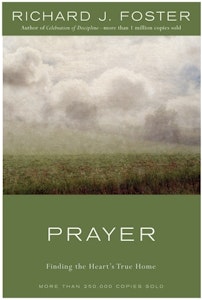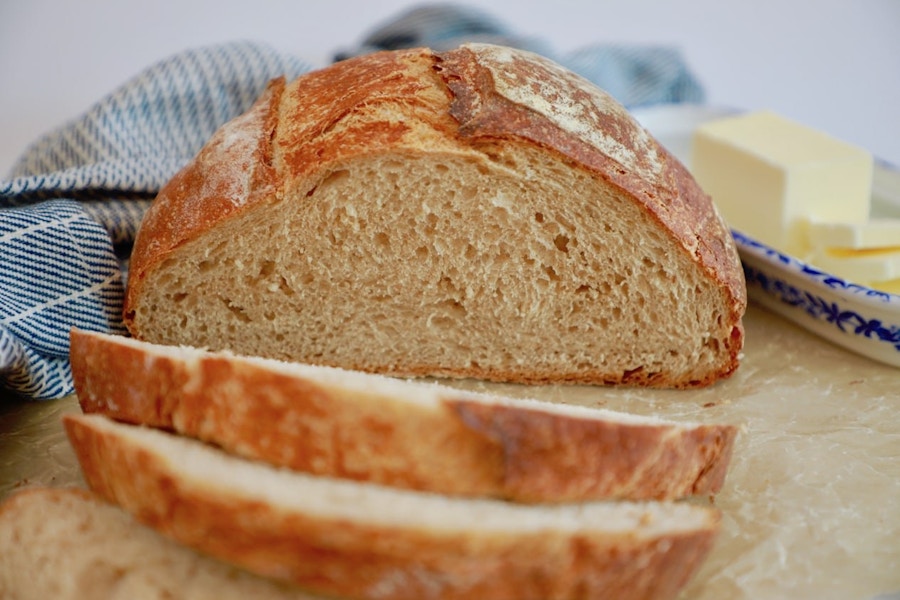Introductory Note:
Author Rebecca DeYoung says that “reflection on the vices is one part of the practice of self-examination, but that practice must first and always be framed by the love of God, which steadfastly holds us. Proceed in the confidence that when we confess our sinful nature and die to sin, it is only a prelude to God’s creation of a beautiful new life in us.”
In this article, Richard Foster and Teresa of Ávila join us to put an exclamation point on that statement in an illumination of the Prayer of Examen. In this excerpt from Richard’s book Prayer: Finding the Heart’s True Home, we discover how self-knowledge of our own sin “leads us to a self-acceptance and a self-love that draw their life from God’s acceptance and love.”
For more on the topic, check out this conversation between Rebecca DeYoung (author of Glittering Vices), Chris Hall (President of Renovaré), and Carolyn Arends (Director of Education, Renovaré).
Renovaré Team
 Excerpt from Prayer: Finding the Heart's True Home
Excerpt from Prayer: Finding the Heart's True Home
By now a question may have arisen in your mind. What is the purpose of all this examination business anyway? Just what are we expecting it to accomplish? It is an honest question, and it deserves an honest answer. Actually the answer is easy to state; it is the value of the answer that is difficult to articulate.
The Prayer of Examen produces within us the priceless grace of self-knowledge. I wish I could adequately explain to you how great a grace this truly is. Unfortunately, contemporary men and women simply do not value self-knowledge in the same way that all preceding generations have. For us technocratic knowledge reigns supreme. Even when we pursue self-knowledge, we all too often reduce it to a hedonistic search for personal peace and prosperity. How poor we are! Even the pagan philosophers were wiser than this generation. They knew that an unexamined life was not worth living. “Know thyself” is the famous dictum of Socrates.
Saint Teresa of Avila understood the value of self-knowledge. In her autobiography she writes, “This path of self-knowledge must never be abandoned, nor is there on this journey a soul so much a giant that it has no need to return often to the stage of an infant and a suckling.” Self-knowledge is not only foundational but also a foundation that can never be forgotten. We are to come back to this most basic way of prayer over and over.
In attempting to explain to us the value of self-knowledge, Teresa adds something that sounds to us quite strange. She writes, “Along this path of prayer, self-knowledge and the thought of one’s sins is the bread with which all palates must be fed no matter how delicate they may be; they cannot be sustained without this bread.” How startling to think that our own sinfulness can be the bread by which we are fed. How can this be?
Paul, you may remember, urges us to offer our bodies — our very selves — as a living sacrifice to God (Rom. 12:1). This offering cannot be made in some abstract way with pious words or religious acts. No, it must be rooted in the acceptance of the concrete details of who we are and the way we live. We must come to accept and even honor our creatureliness. The offering of ourselves can only be the offering of our lived experience, because this alone is who we are. And who we are — not who we want to be — is the only offering we have to give. We give God therefore not just our strengths but also our weaknesses, not just our giftedness but also our brokenness. Our duplicity, our lust, our narcissism, our sloth — all are laid on the altar of sacrifice.
We must not deny or ignore the depth of our evil, for, paradoxically, our sinfulness becomes our bread. When in honesty we accept the evil that is in us as part of the truth about ourselves and offer that truth up to God, we are in a mysterious way nourished. Even the truth about our shadow side sets us free (John 8:32).
There is, therefore, no need to repress, suppress, or sublimate any of God’s truth about ourselves. Full, total, unvarnished self-knowledge is the bread by which we are sustained. A yes to life means an honest recognition of our own evil, but it is also a yes to God, who in the midst of our evil sustains us and draws us into his righteousness.
Through faith, self-knowledge leads us to a self-acceptance and a self-love that draw their life from God’s acceptance and love. So Saint Teresa is right after all; this is “the bread with which all palates must be fed.” Her words are wise counsel indeed: “This path of self-knowledge must never be abandoned.”
Excerpted from Prayer: Finding the Heart’s True Home by Richard J. Foster (HarperCollins, 1992).
Text First Published September 1992 · Last Featured on Renovare.org April 2020


